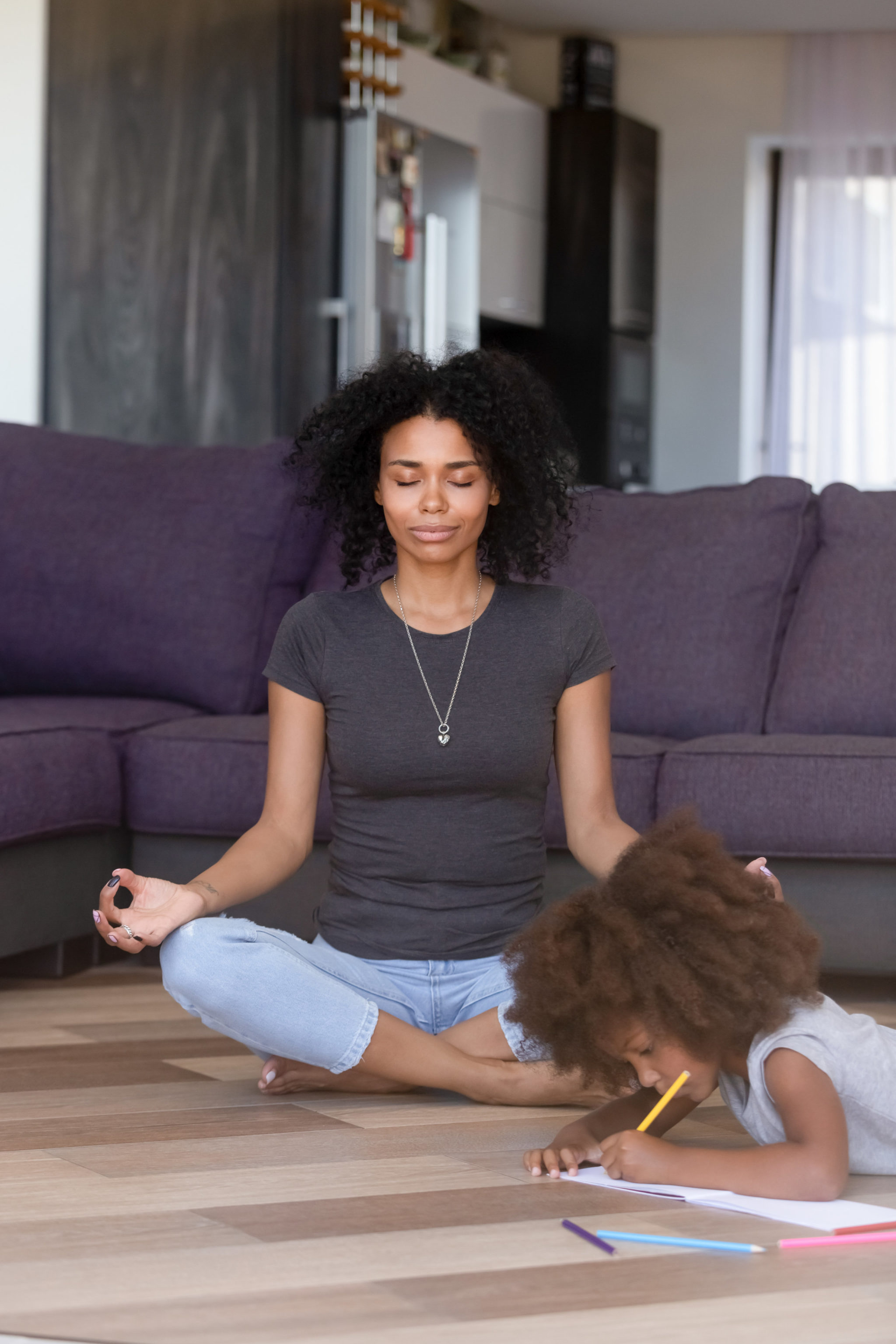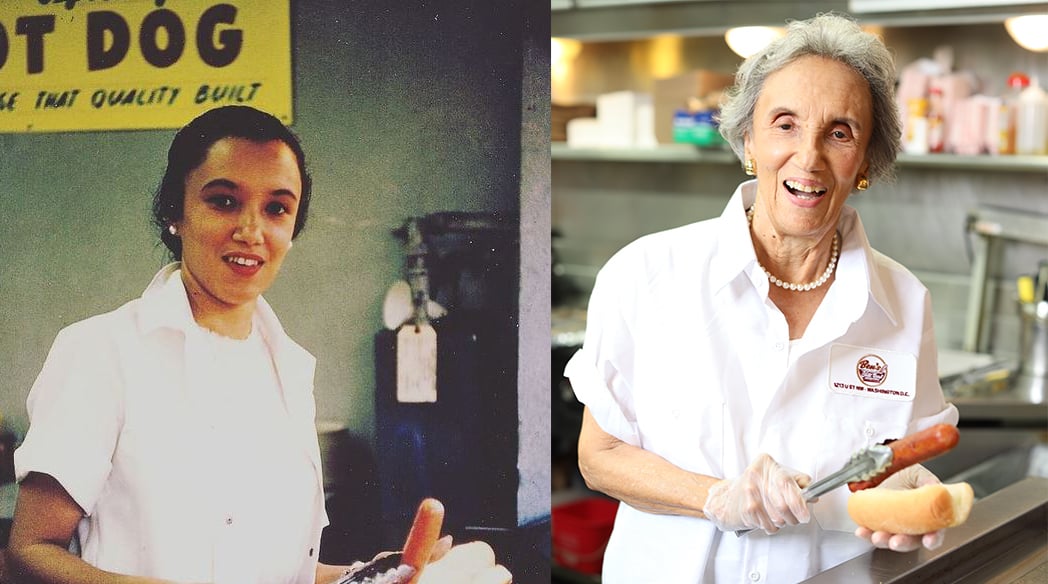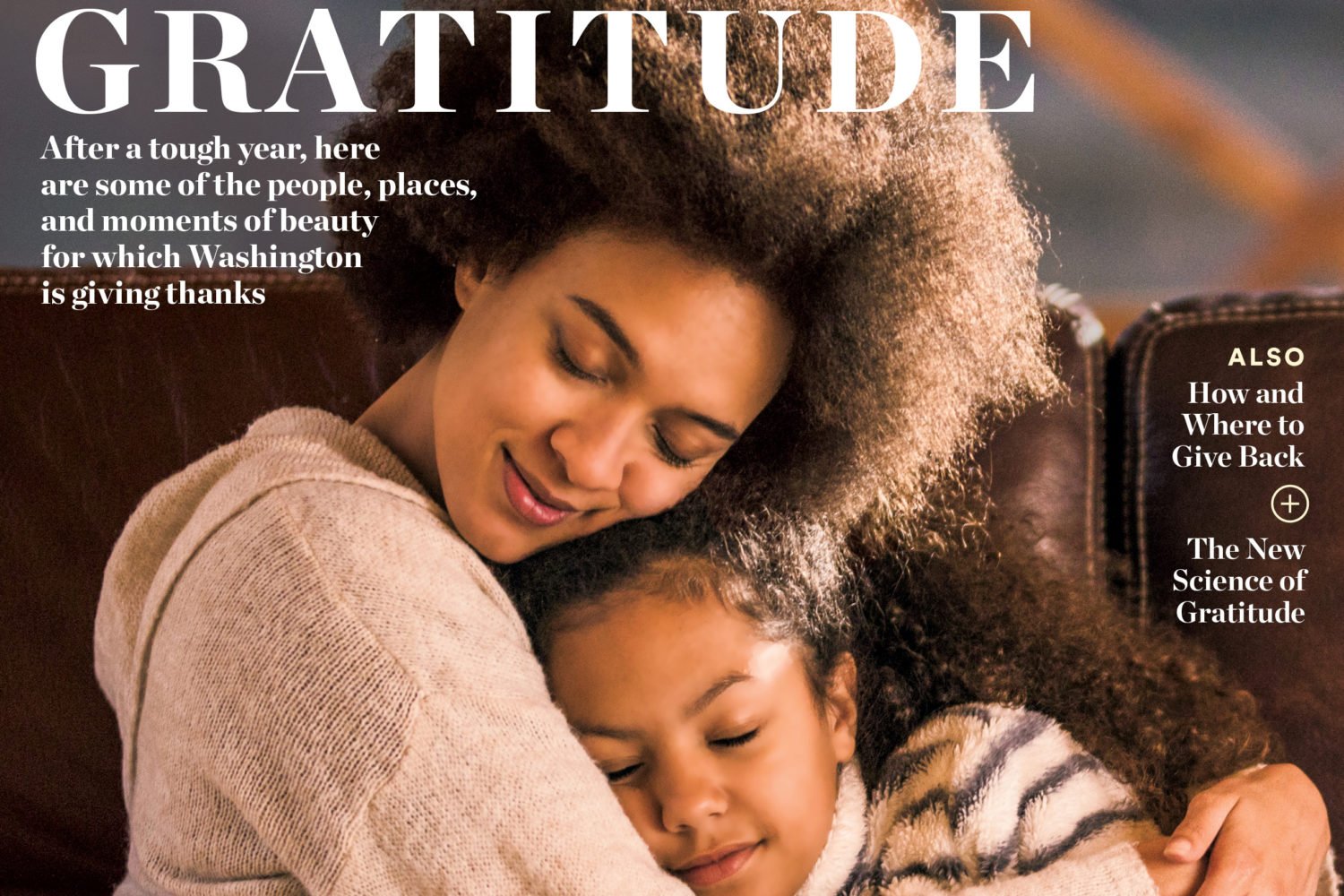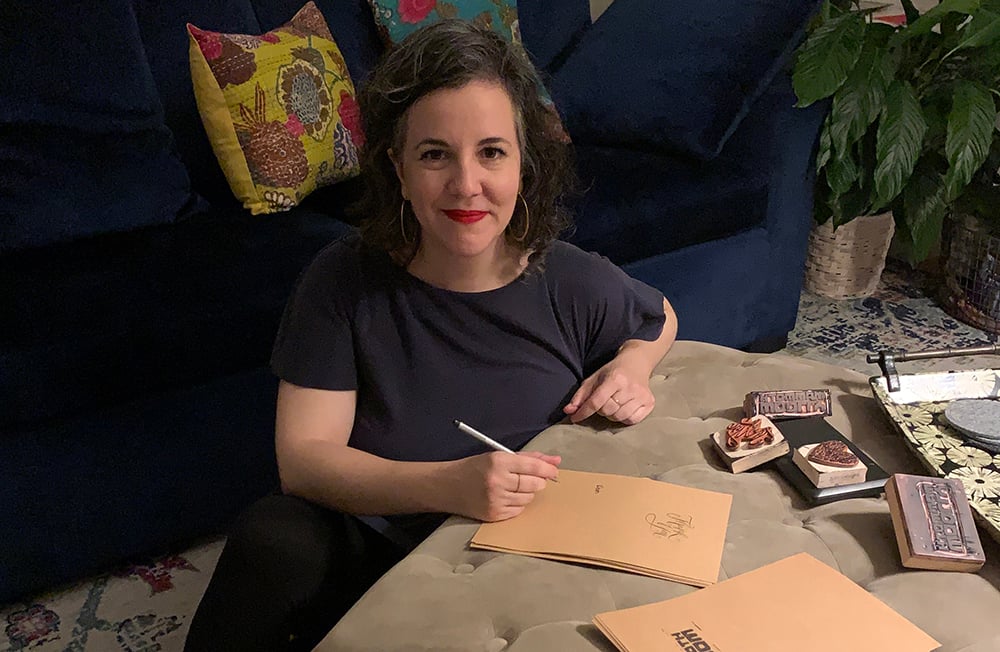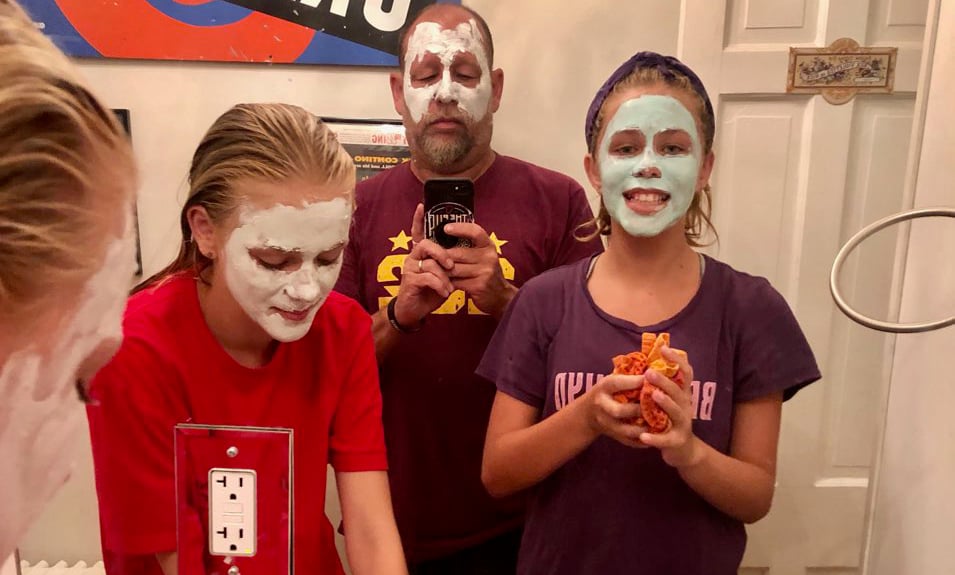Contents
Click here to see what some prominent Washingtonians are grateful for in 2020.
Thankfulness vs. Gratitude
They’re not necessarily the same. For gratitude, you have to “dig deeper.”
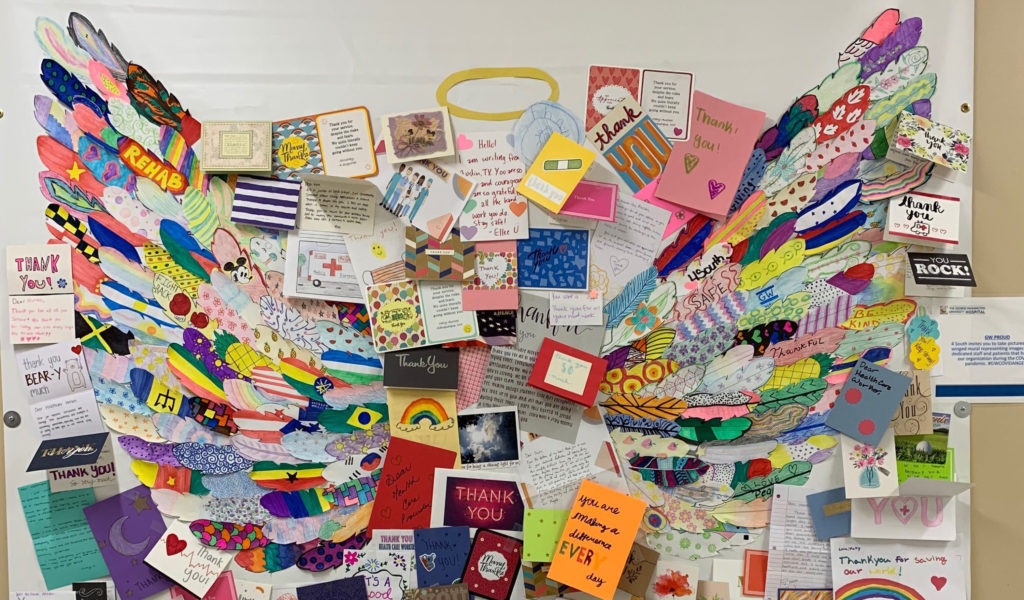
We teach little kids to write thank-you notes. That’s a great start in learning to be grateful, says Todd Kashdan, a professor of psychology at George Mason University. “But as an adult,” he suggests, “dig deeper.
“When it comes to expressions of gratefulness, people tend to be perfunctory,” he says, citing dashed-off thank-you e-mails and notes that don’t have depth of feeling.
“Saying thank you is a behavior—gratitude is an emotion,” says Sara Oliveri, a DC life coach with a master’s degree in positive psychology. “We’ve been trained to say thank you in specific instances. That is not the same as feeling the genuine emotion of gratitude.”
Saying thank you becomes an act of gratitude when you’re not just acknowledging a gift or deed but describing why you appreciate what someone did and how it had meaning in your life. “There is data to show that the more personalized detail you use,” Kashdan says, “the more impactful it is to the person.”
Kashdan points to an example in his own life. “My wife is in Florida visiting her parents because they’re sick, and I’m watching our kids, two 13-year-old twins and an eight-year-old,” he says. “My wife doesn’t just send me texts saying, ‘Thank you for taking care of the girls.’ She’ll say, ‘I know how much you like to focus on your research and writing, and the fact you’re sacrificing so much time for me and our kids makes me so happy and glad you are in my life.’
“Most of us tend to be grateful,” Kashdan says, “but most of us don’t put energy and effort into expressing it.”
Back to Top
How to Have a More Grateful Disposition
Thankfully, there are a number of good ways to practice gratitude.
Gratitude Journal
A great way to start a habit of gratitude is to regularly write down three to five things you’re thankful for. While doing it daily is great, research suggests that a weekly practice feels less like a chore. Sara Oliveri, a life coach, recommends including your reasons. “That forces you to think deeply about the thing you’re grateful for,” she says.
Gratitude Talk
Some people also set a regular conversation—say, weekly—with a loved one: “One question I like to ask is ‘What was the highlight of your week?’ A question like that is going to bring about a gratitude conversation.”
Gratitude Meditation
Another method: Sit in silence for a few minutes, breathe deeply, and focus on one thing you’re grateful for. Allow that thought to “flood your system,” says Alice Hu, founder of DC’s wellness-focused Woo Woo Company. “Gratitude is a powerful tool that allows you to shift your energy.”
Counterfactual Exercise
Todd Kashdan, a psychology professor at George Mason University, recommends not just counting blessings but imagining life without them: “I have twin 13-year-olds. Like all teens, they are designed to defy me. During moments of discord, I reflect on ‘What if they were to die?’ Your brain doesn’t go to ‘I’d have my weekends free.’ What your mind goes to is sorrow.”
Gratitude Letter
Has someone done something nice that made a big difference in your life? If you’ve never properly thanked that person, consider writing a gratitude letter. “Really flesh out why something was meaningful,” Kashdan says. “Recognize the sacrifice someone else made. Talk about the downstream benefits of someone doing something for you. Telling them this creates a poignant moment between two people.”
Gratitude Visit
If writing a letter to a friend, former teacher, mentor, or other important person in your life isn’t heartfelt and intense enough, consider reading it to the person, face to face, versus mailing it. Says Kashdan: “Gratitude visits can be profound touchstones in a relationship.”
Back to Top
The Healing Power of Gratitude
Being thankful doesn’t just feel good—it has proven health benefits.
Cicero, the ancient Roman statesman, once called gratitude the “greatest of virtues.” Today he might call it the greatest of scholarly pursuits.
#Gratitude isn’t just some cultural trend. Gratitude is now a full-fledged topic of scientific research. According to the John Templeton Foundation, there have been at least 270 studies on gratitude in the past two decades. (Before that, there were only a handful.) More than half were published in the last five years.
It stands to reason there would be measurable benefits to practicing gratitude—which Robert Emmons, a University of California Davis professor and one of the world’s foremost gratitude researchers, defines as seeing the good in our lives and recognizing that the good was caused by forces outside ourselves. Now we have peer-reviewed evidence.
A big reason for the surge in research has been a surge in funding: The John Templeton Foundation has doled out approximately $27 million alone for 20 research projects.
Among recent findings: A study published in 2016 determined that young women who kept a gratitude journal for two weeks slept better than women in the study who didn’t. Regularly writing down things we’re grateful for also, it turns out, helps the heart: A study of cardiac patients who kept a daily gratitude diary showed reduced inflammation two months later.
A 2011 Fordham University study even reported that Americans who received postcards thanking them for voting in a previous election were more likely to go to the polls for an up-coming election.
Other research has indicated that having a grateful outlook makes people calmer and happier, raises self-esteem, strengthens marriages, increases productivity, prompts greater generosity, and triggers better self-care—we eat more healthily, exercise more, drink less.
“Gratitude brings so many benefits,” Emmons says. “Gratitude has the power to heal, to energize, and to change lives. There is no domain in which gratitude is shown to make life worse.”
Back to Top
12 Proven Reasons to Be Thankful
Numbers don’t lie: There are scientific benefits to counting one’s blessings.
People who practice gratitude . . .
• • •
Give an average of 20% more time and money to charity
• • •
Experience 25% more happiness
• • •
Exercise 40 minutes more, on average, each week
• • •
Experience as much as 29% better sleep quality
• • •
Have blood pressure that’s 12% lower
• • •
Smoke 38% less
• • •
Lower biometric markers for diabetes by as much as 13%
• • •
Eat 30% less saturated fat
• • •
Among health-care workers, reduce stress by 28%
• • •
Among teenagers, are 20% more likely to get A grades
• • •
Have 23% lower levels of cortisol, which is
a stress hormone
• • •
For those at risk, reduce the chance of depression by 41%
• • •
Sources include Robert Emmons at the University of California Davis; the John Templeton Foundation.
Back to Top
What You, Our Readers, Are Grateful for
We asked readers on Instagram: “What’s something about DC you’re especially grateful for in this difficult time?” Here, some of the answers.
“So grateful that people generally wear masks when out in public.”
“The diversity.”
“The protesters.”
“That 93 percent of us voted Trump out.”
“That it’s a walkable city.”
“Beautiful architecture on every street as I’m walking around.”
“People who support small businesses.”
“All the efforts businesses are taking to ensure customer safety.”
“Our amazing outdoor spaces, especially our European-style sidewalk cafes and patios.”
“Virginia wines.”
“No traffic.”
“The trees and access to nature.”
“Rock Creek Park trails and kayaking on the Potomac.”
“The abundance of running paths.”
“Capital Bikeshare! Love my daily bike ride to escape.”
“Use of the National Mall without a bunch of tourists.”
“The outdoor space. Makes things almost seem normal.”
Back to Top
Take This Quiz to Find Out: How Grateful Are You?
Rate the following statements on a scale of 1 to 7, with 1 indicating “strongly disagree” and 7 indicating “strongly agree”.
___1. I have so much in life to be thankful for.
___2. If I had to list everything that I felt grateful for, it would be a very long list.
___3. When I look at the world, I don’t see much to be grateful for.
___4. I am grateful to a wide variety of people.
___5. As I get older, I find myself more able to appreciate the people, events, and situations that have been part of my life history.
___6. Long amounts of time can go by before I feel grateful to something or someone.
___7. I have been richly blessed in my life.
___8. To be honest, it takes an awful lot to make a person like me feel appreciative.
___9. I have a wonderful sense of thanksgiving for life itself.
___10. I often reflect on how much easier my life is because of the efforts of others.
How to calculate your score:
1. Add up your scores for 1, 2, 4, 5, 7, 9, and 10.
2. Reverse your scores for 3, 6, and 8. If you scored a “7,” give yourself a “1,” if you scored a “6” give yourself a “2,” and so on.
3. Add the reversed scores to the total from step 1. This is your total score.
Quiz courtesy of Robert Emmons, author of Gratitude Works and perhaps the nation’s leading scientific expert on gratitude.
How to interpret your score:
64–70: Very high gratitude. You have the ability to see life as a gift. For you, gratitude is a way of life.
57–63: High gratitude. Your life contains frequent expressions of gratitude and you readily acknowledge how others have helped you.
50–56: Above-average gratitude. You find it easy to spend time reflecting on your blessings, especially when life is going well.
43–49: Average gratitude. You are capable of feeling grateful when things are going well but likely have difficulties maintaining a grateful outlook in tough times.
36–42: Below-average gratitude. You find it challenging to find reasons for gratitude. Life is more of a burden than a gift. Perhaps you are just going through a downturn. You have the most to gain from a gratitude practice.
